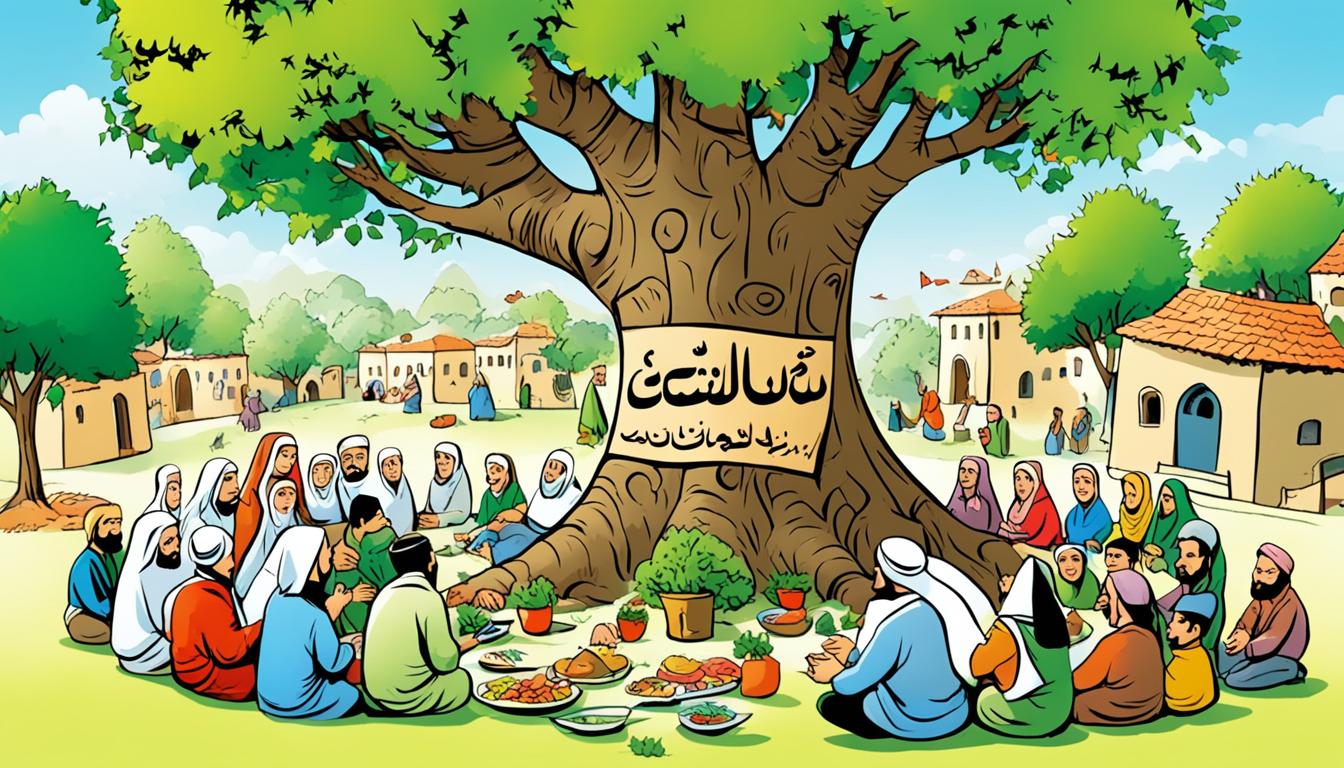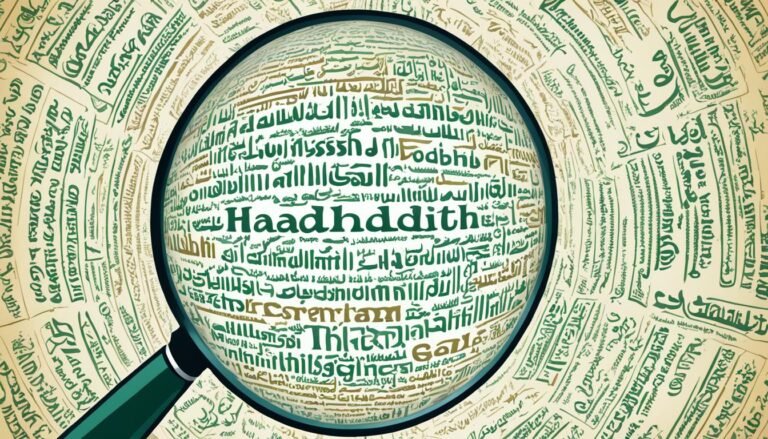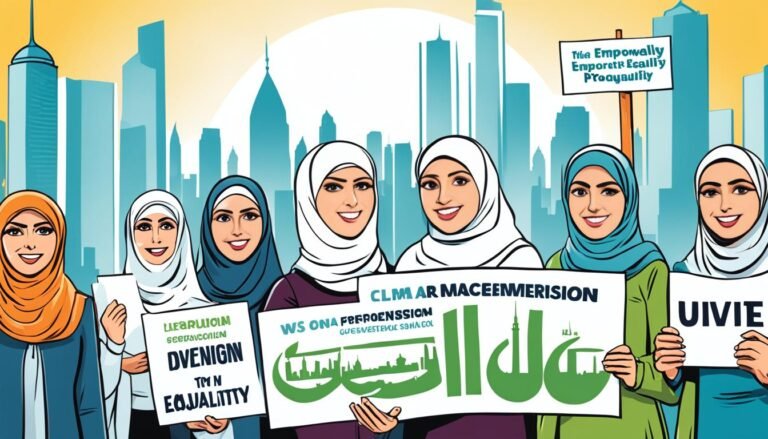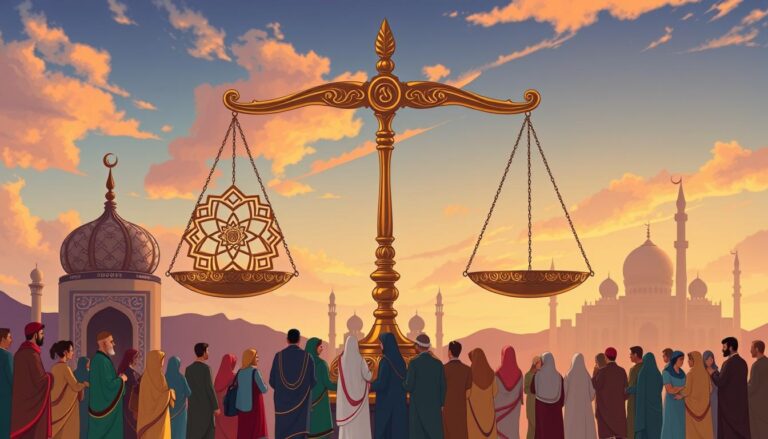Understanding Sharia: Myths and Realities
Have you ever thought about why Sharia law gets such mixed reactions? Some fear it, while others see its value. It’s key to look into the myths and facts of Sharia to get the real story. This system of law affects over 1.2 billion Muslims worldwide, making up more than 20% of the world’s people. It’s important to clear up the confusion.
We’re going to dive deep into Islamic law, tackling common myths and showing how Sharia can be flexible. By looking at its roots in the Quran and Sunna, its history, and its role today, we’ll make this complex topic clearer. Our goal is to give you a better understanding of Sharia.
Key Takeaways
- Sharia law is practiced by over 1.2 billion Muslims, representing a significant portion of the global population.
- It encompasses various aspects of life, including dietary laws, dress code, finances, and social relations.
- Common misconceptions about Sharia often ignore its objectives of justice and equality.
- Sharia law is often integrated with conventional legal systems in many nations.
- Understanding Sharia is crucial for promoting awareness and combating fear rooted in misinformation.
What is Sharia Law?
Sharia law is a set of rules based on Islamic teachings. It guides the lives of Muslims all over the world. People often ask, “What is Sharia law?” It’s a legal and ethical system that comes from Islam.
Definition and Etymology of Sharia
The word “Sharia” means “the path to follow God’s Law.” It covers many rules for Muslims’ daily lives. Sharia definition changes with culture, showing local customs and views. It’s not a single set of rules but a system that has grown over time.
Sources of Sharia Law
The Quran and the Sunna are key Sharia sources. The Quran is the main guide, with God’s commands for Muslims. The Sunna is the Prophet Muhammad’s teachings and actions.
Scholars and religious leaders add to these texts. They explain how to apply the principles today.
The Role of the Quran and Sunna
The Quran and Sunna are the core of Sharia. They guide personal and social life. They cover many topics, like family and ethics.
Fiqh adds more details to Sharia, based on these texts. Sunni and Shi’a views differ, affecting how Sharia is applied.
| Aspect | Quran | Sunna | Fiqh |
|---|---|---|---|
| Definition | Divine scripture | Prophetic traditions | Legal opinions |
| Source of Law | Primary | Supplementary | Derived from Quran and Sunna |
| Cultural Influence | Universal | Varied by culture | Dependent on locality |
Historical Context of Sharia Principles
The history of Sharia is key to understanding its rules and use. In early Islamic times, Sharia was a set of rules that blended with the culture and society. It mixed tribal ways with religious teachings, creating a unique view of Islamic law.
Sharia in Early Islamic Society
Sharia was vital in early Islamic life, guiding people in many areas. It mixed local traditions with religious teachings, leading to different practices in various places. This mix showed Sharia’s ability to fit the needs and values of different groups.
This diversity shaped how Sharia was seen and used, showing its connection to history and culture.
Evolution of Sharia over Time
Sharia has changed over time, showing its ability to adapt. As Islam spread, Sharia took on new cultural elements while keeping its core beliefs. This led to different legal views within Islamic communities.
This evolution made Sharia more relevant to today’s needs, adding to its history. Political and cultural factors have also influenced Sharia, making it diverse and suited to different times.
Common Misconceptions about Sharia
Sharia can be hard to understand, with many wrong ideas out there. These wrong ideas affect how people see it and talk about it. It’s important to clear up these wrong ideas to get a true picture of this legal system.
Fixed Punishments: A Myth
Many think Sharia means strict, unchangeable punishments. But, the truth is, these punishments can change based on the situation. Judges look at the case details before making a decision. This shows Sharia law is not just about strict rules.
Sharia and Human Rights Concerns
Some believe Sharia goes against human rights. But, Sharia also values justice and fairness. In places like Pakistan, most Muslims think non-Muslims should be free to follow their faith. Sharia’s goals are to protect people and make society better.
Separation of Religion and State
Some say Sharia doesn’t separate religion from government. But, in many Islamic countries, Sharia guides ethics while allowing secular laws in public life. This shows Sharia can work with secular governance, showing different ways to mix religion and state.
Understanding Sharia: Myths and Realities
Sharia is a flexible legal system that guides people in spiritual, ethical, and social matters. It also helps with issues like social justice and governance. This system has many interpretations and practices, which change a lot across cultures.
This flexibility lets Sharia deal with today’s problems while staying true to Islamic values.
Sharia as a Flexible Legal System
Understanding Sharia shows its beauty in being flexible. Scholars from different schools of thought have their own ways of interpreting it. This leads to many Sharia practices.
This flexibility is key. Many Muslims believe in personal freedom in their faith. They don’t want one strict interpretation as the law. Sharia guides them in ethics and personal life, but civil laws apply to everyone, Muslims and non-Muslims alike.
Sharia Practices in Different Cultures
Culture affects how Sharia works in different places. For example, in Indonesia, Sharia is part of a secular democracy. There, a Christian governor faced legal trouble for actions seen as against Islam.
In Algeria, there’s a debate between secular and religious groups. They’re trying to balance Islamic values with modern laws. These examples show how Sharia can adapt to local norms while keeping Islamic principles.
The Role of Islamic Judges (Qudis)
Islamic judges, known as Qudis, play a key role in applying and interpreting Sharia law. They do more than just judge cases. They need both legal knowledge and religious understanding. The way they are chosen is complex and varies, making sure they are qualified and morally upright.
How Judges are Selected
The selection process for Islamic judges looks at several key factors. Candidates must have:
- Deep knowledge of Islamic law
- Legal education
- Experience in judging or advising
- A strong moral and ethical base
Even with these standards, there’s no official way to prove someone is qualified. This can lead to different views on Islamic law, affecting legal decisions.
Judicial Discretion in Islamic Law
Qudis have a lot of power in Islamic law. In minor cases, they can interpret Sharia based on the situation. This approach helps them make decisions that fit both old values and new needs.
In short, Islamic judges have a big impact. They settle disputes and make sure Sharia law fits with changing ideas of justice and community values.
Sharia Law and Western Legal Systems
Sharia and Western legal systems meet at an interesting crossroads. They both strive to ensure justice and protect human rights. Yet, they come from different cultures and histories. This similarity opens doors for dialogue and understanding between them.
Similarities between Sharia and Common Law
Sharia and Western legal systems share a goal: fairness and human dignity. They both have ways to settle disputes and value community input. This shows that Sharia also values ethical principles known in the West.
Differences in Legal Frameworks
However, Sharia and Western laws are quite different, mainly because of Sharia’s religious roots. Sharia’s laws are shaped by faith, unlike Western laws which are more secular. Sharia looks at the bigger picture, focusing on community and spiritual well-being. This highlights the unique roles of each legal system in their societies.
Sharia Rights and Gender Equality
Sharia rights often touch on gender equality and women’s rights in Islam. Sharia interpretations vary widely, but Islamic principles support women’s dignity and empowerment. Sharia sets up rights for women in marriage, divorce, and inheritance.
Women’s Rights in Islam
Islamic teachings stress the value of women’s rights. Laws on inheritance give women their fair share, showing fairness. In Saudi Arabia, reforms like ending male guardianship show a move towards equality. Tunisia ensures post-divorce support matches the couple’s previous life.
Sharia and Custody Laws
Custody laws focus on the child’s welfare, often giving mothers a key role. Decisions aim to support the child’s best interests. This approach helps create a caring family setting. Custody laws vary by culture, shaped by each region’s laws and customs.
| Country | Women’s Rights | Custody Laws |
|---|---|---|
| Saudi Arabia | Recent amendments to end male guardianship | Mothers often receive primary custody |
| Tunisia | Post-divorce maintenance awarded based on standard of living | Supports mother’s role in child-rearing |
| Afghanistan | Legal recognition of wage demands for household work | Focus on child welfare in custody decisions |
| Turkey | Equal division of assets acquired during marriage | Custody decisions prioritize children’s best interests |
| Indonesia | Mixed legal systems considering gender issues | Cultural influences shape decisions |
The changing view of Sharia rights and women’s rights in Islam shows a deep conversation on gender equality. Examples from many countries show Sharia can lead to more equal societies. It also protects women and children’s rights.
Contemporary Issues Surrounding Sharia
Sharia has become a hot topic, especially in how it fits into American law. Questions pop up about how Sharia can work with state laws in courts. Sharia is slowly being accepted, like in marriage contracts, but there are still hurdles, especially with inheritance and property.
Sharia in American Courts
In the U.S., courts often deal with Sharia law in family matters. These cases bring up tough legal questions and how to interpret Sharia. Sharia’s rules on inheritance need careful handling to divide property fairly among heirs. Legal experts aim to find a middle ground, but public views on Sharia can affect court decisions.
Public Perception and Media Representation
Media often distorts how people see Sharia, causing confusion and fear. Many don’t know about the different ways Sharia is practiced. A 2013 Pew poll showed most Muslims want Sharia in their countries, but some parts of it scare the public. Teaching more about Sharia can help clear up wrong ideas and lead to better talks about its place today.
| Aspect | Details |
|---|---|
| Sources of Sharia | The Qur’an, the Sunnah, ijma’, and qiyas. |
| Schools of Thought | Shafi’i, Hanbali, Maliki, and Hanafi. |
| Legal Framework | Sharia governs all aspects of life. |
| Inheritance Complexity | Sharia’s inheritance rules follow “the science of shares.” |
| Public Support | A majority of Muslims favor Sharia as official law in their countries. |
| Media Impact | Media representation shapes public perceptions and fears. |
Conclusion
When looking at Sharia understanding, it’s key to keep an open mind. Sharia is a complex legal system, with most of it focusing on spiritual acts like prayer and charity. This shows its deep spiritual roots, but only a small part deals with laws for punishment.
American Muslims respect American laws and don’t push for Islamic laws here. This shows their commitment to living in harmony with the country.
The future of Sharia will depend on how different groups talk and understand each other. When American courts look at Islamic laws in some cases, it’s important to talk about it with respect. This can lead to a fairer legal system that protects everyone’s rights, no matter their background.
Seeing *Sharia* as a religious guide and a part of modern laws can help society. By clearing up wrong ideas about Sharia and highlighting its good points, we can build a better society. This way, we can have a smart public conversation about Sharia law’s true nature.
Source Links
- Islamic Law: Myths and Realities
- Islamic Shariah13 min read
- Sharia Law: Myths And Reality – A Sri Lankan Perspective – Colombo Telegraph
- Sharia
- Start reading Sharia Compliant | Rumee Ahmed
- Shariah
- Otto 1..46
- Islamic finance: a Sharia-based form of economy? – Twist Islamophobia
- Islamic Law Lectures | Halal Tube
- Islam’s Response to Misconceptions about Sharia Law
- Women in Islamic Law: Examining Five Prevalent Myths | Yaqeen Institute for Islamic Research
- Global Plus: Sharia • International Association of Religion Journalists
- Shariah courts in Canada, Myth and Reality
- No, Shari’ah Law Is Not Compatible With Western Values
- 14. Towards comparative conclusions on the role of sharia in national law
- Politics of Islamic Shariah in the Contemporary Muslim World – Document
- Busting 5 Myths Women Have About Financial Rights in Islam – Musawah
- Sharia-Compliant Wills: Principles, Recognition, and Enforcement
- The Sharia Problem with Sharia Legislation
- The Moral Status of Organ Donation and Transplantation Within Islamic Law: The Fiqh Council of North America’s Position
- Shariah,myths & facts
- The Myth of Sharia Law in America







